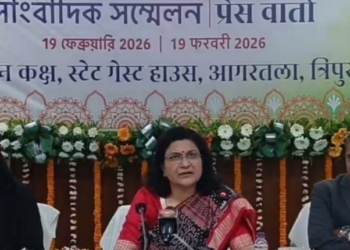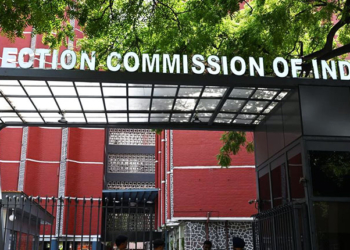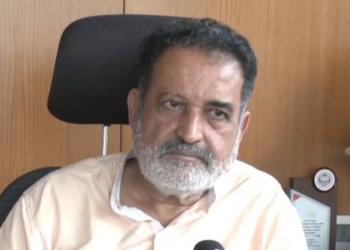New Delhi: India has developed a novel antibiotic to fight antimicrobial resistance (AMR), as well as a new drug to tackle burden of kala-azar, also known as visceral leishmaniasis (VL) in the country, deliberated eminent scientists on Friday.
The experts were speaking on the second day of the 9th International Symposium on Current Trends in Drug Discovery Research at CSIR-Central Drug Research Institute in Lucknow. The event saw experts from different areas share their recent findings on drug resistance, Car T-cell therapy for cancer care, and parasitic and viral diseases.
Prof. Shyam Sundar from the Banaras Hindu University, Varanasi, shared the journey of the epidemic of visceral leishmaniasis (VL), starting from its origin to elimination, in India.
“Single-dose liposomal amphotericin B (LAmB) is a game changer in the management of visceral leishmaniasis,” said Sundar.
According to data from the National Centre for Vector Borne Diseases Control (NCVBDC), India has achieved its target of eliminating kala-azar. The country had initially aimed to eliminate kala-azar by 2010, but the target was extended until 2023 due to persistent challenges.
Sundar noted that the elimination target for VL needs to be held in 2025 to obtain the WHO certification. The experts also highlighted that AMR has rendered many existing antibiotics ineffective, posing a major global health crisis.
To counter this, Dr. Sachin S. Bhagwat from the Wockhardt Research Center, Aurangabad, spoke on the discovery of a novel mechanism of an action-based beta-lactam plus beta-lactam enhancer combination — WCK 5222 — with comprehensive coverage of pan-drug resistant Gram-negatives.
Even as AMR infections are responsible for up to 8.85 lakh deaths annually, with an additional 9.6 lakh linked to sepsis, Bhagwat said the novel beta-lactam enhancer, Zidebactam, in combination with cefepime (WCK 5222), demonstrated potent activity against 35,000 global pan-drug-resistant Gram-negative isolates.
“WCK 5222 has saved over 45 lives under compassionate use and completed successful trials in severe documented meropenem-resistant infections and is expected to change the treatment paradigm for life-threatening Gram-negative infections,” he added.
Further, Prof. Rahul Purwar from the Indian Institute of Technology (IIT) Bombay, shared the journey on the first “Make in India” CAR-T cell therapy, which is a “robust, safe and affordable technology platform and validated through Phase I and Phase II clinical trials” in the country.
“Car T-cell therapy is an emerging approach for cancer care,” Purwar said, noting that, CD19 Car-T was approved by CDSCO for commercial use in October 2023. More than 300 patients across the country have benefited from the therapy, he said.
Prof. Sudhanshu Vrati from the Regional Centre for Biotechnology (RCB), Faridabad, mentioned the need for novel antivirals to provide immediate therapeutic options against serious viral infections.
As the new viral pathogens are constantly emerging and posing a serious threat of imminent epidemics, he presented the background to the science of antiviral development with an example of a novel antiviral against the Chikungunya virus, developed in his lab.
Prof. Gaurav Batra from the Translational Health Science and Technology Institute (THSTI), Faridabad delivered their novel findings on the diagnostics of Arboviral infections, which include, dengue, Zika, and chikungunya. The Institute is also developing rapid antigen tests for Zika and chikungunya, to integrate them into a multiplex diagnostic platform.
(IANS)
















